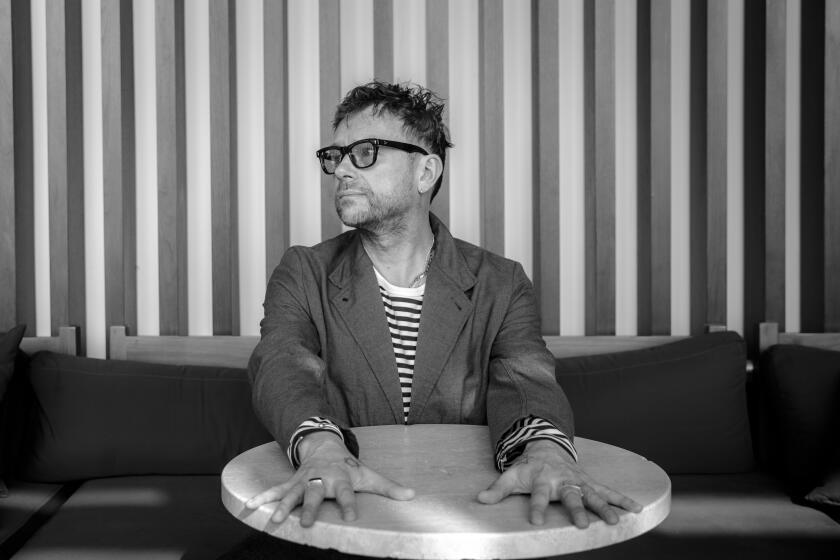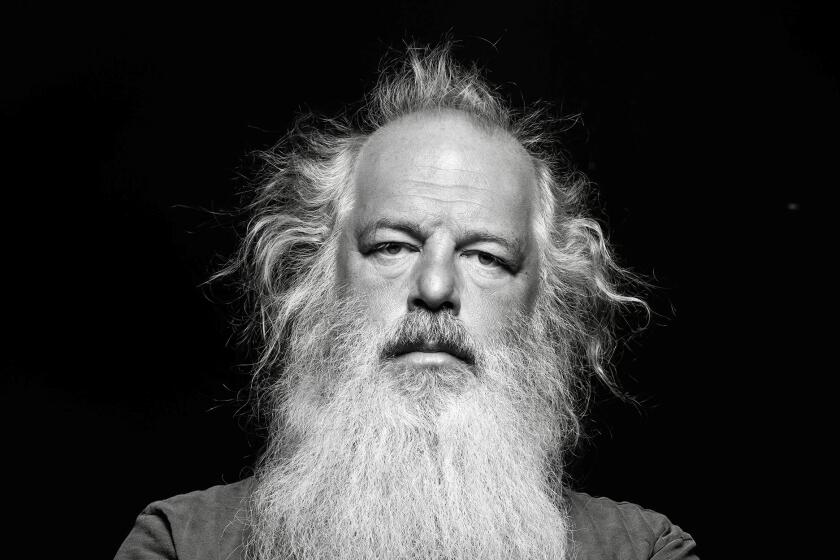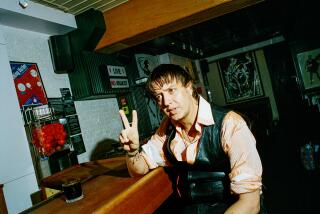It was all a blur: How guitarist Graham Coxon (barely) survived Britpop, in a memoir
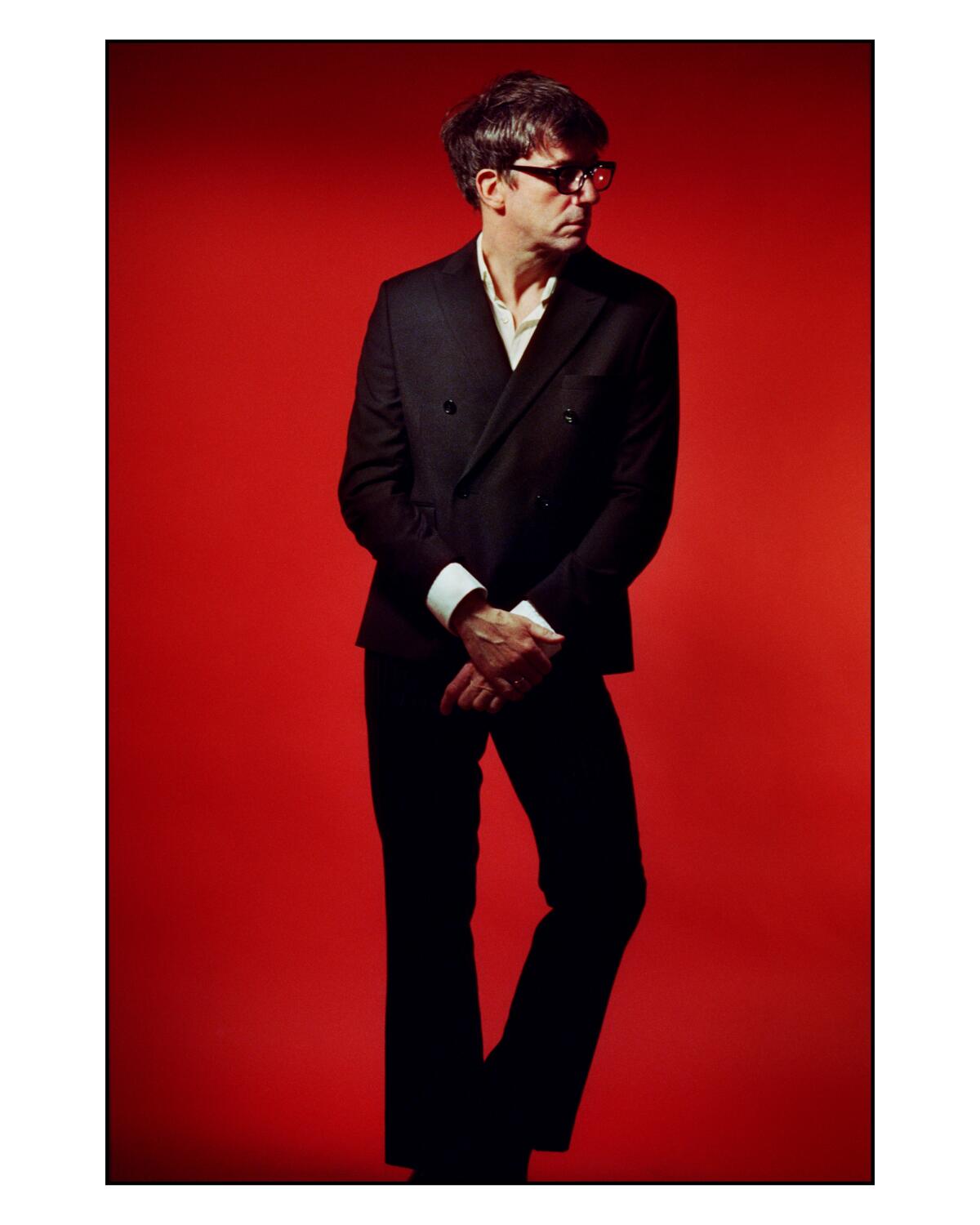
Review
Verse, Chorus, Monster!
By Graham Coxon
Faber & Faber, 320 pages, $30
If you buy books linked on our site, The Times may earn a commission from Bookshop.org, whose fees support independent bookstores.
What is a rock ‘n’ roll memoir for? To settle scores, foreground one’s achievements at the expense of others, elicit public empathy for the Poor Little Rich Star? Over the past decade or so, there have been boatloads of such books, all of them ticking off one or more of these morning talk show tropes.
Graham Coxon’s new entry in the genre, “Verse, Chorus, Monster!,” is a bit different. The co-founder and guitarist for Blur, Coxon and his bandmates Damon Albarn, Alex James and David Rowntree became — for a Roman-candle moment in the mid-’90s — the leaders of the subgenre known as Britpop, the biggest rock music phenomenon in England since Beatlemania. Coxon is here to tell us that despite the Kentish estate, the Italian sports cars and the endless reams of royalty checks, it was all kind of miserable.
This sharp autobiography is a tale told by a musician who found riches and fame doing something that didn’t come easy to him: playing music in front of people for a living. Unlike his bandmate Albarn, “a cocky Londoner who didn’t give a s— what people thought of him,” Coxon was an introvert. After taking in the stories of Coxon’s uneasy negotiations between his private and public selves, it’s hard not to feel as if the guitarist might have been better off working like Steely Dan’s Walter Becker and Donald Fagen, studiobound and hermetic. Instead, fame found Coxon thrust into situations where he could never quite acclimate himself — a genuine rock star who felt like an impostor.
Before his solo show at Walt Disney Concert Hall, the Blur and Gorillaz leader sounds off on Taylor Swift, the Rolling Stones, Boris Johnson and L.A.
“Verse, Chorus, Monster!”, co-written with British music journalist Rob Young, begins like so many rock memoirs do — with the narrator’s urge to grab all attention by any means necessary. Coxon’s dad was a saxophonist, the leader of various military bands for the British army. Until the family moved to London, young Coxon was adrift, a latchkey kid drawing ghouls in his notebooks, unsure of his place in the world. Then, at age 11, his Road to Damascus moment: He hears “Start,” the propulsive 1980 single by British punk trio the Jam. Coxon buys a Les Paul knockoff and a 10-watt amp from a schoolmate, and the road soon rises up to meet him.
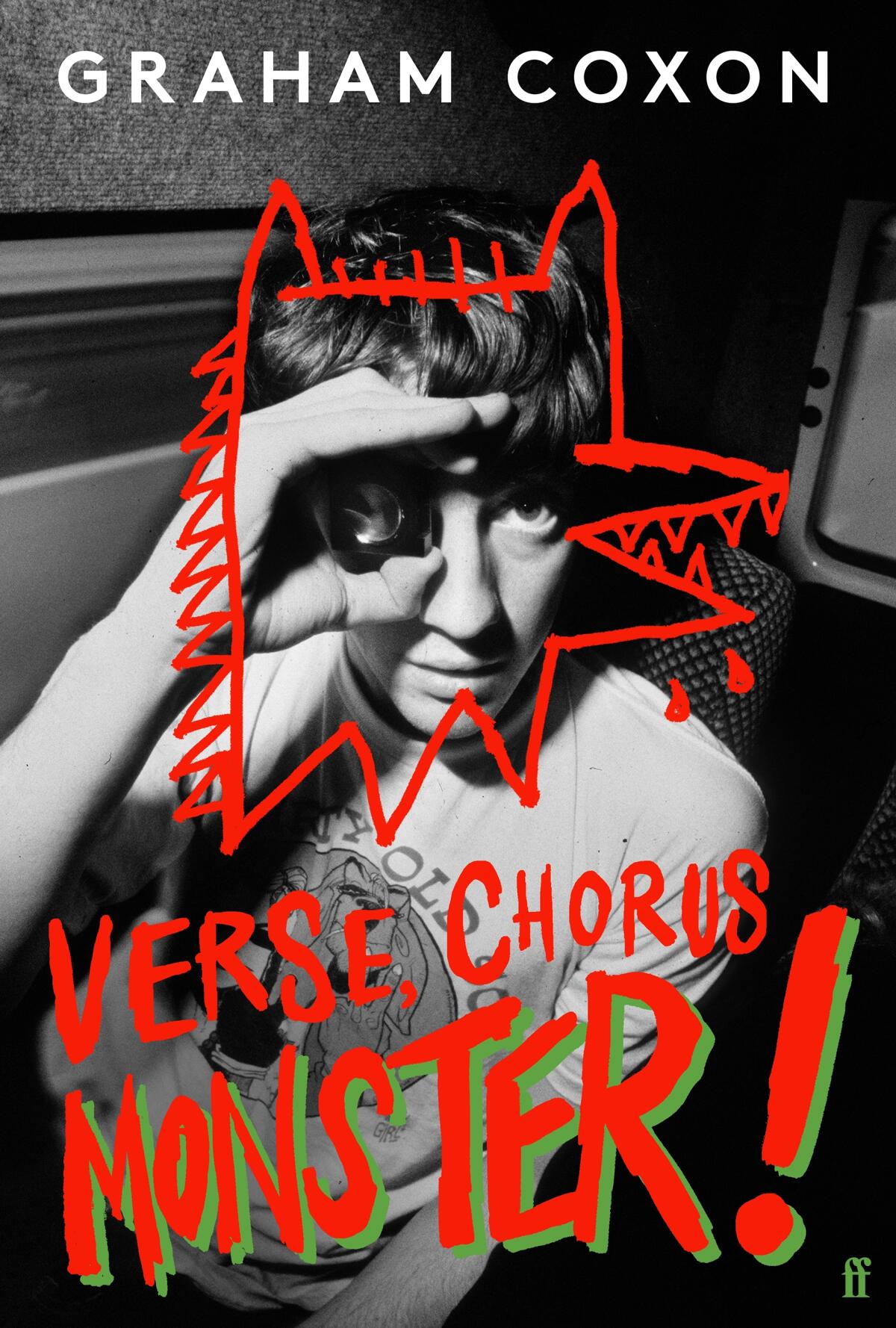
Playing guitar “blasted a hole” through his ever-present anxiety. “I was cocooned in a zone of pure sound where nothing else existed,” he writes. Coxon’s schoolmate Albarn, whom he first encounters in a production of “West Side Story,” is a future star and Coxon knows it: self-confident, brash, a hustler. The pair, along with James and Rowntree, form a band called Seymour, after Salinger’s Seymour Glass. In the beginning, it’s chaos — noisy, art-damaged post-punk. Coxon loves playing but not performing. He shrinks from attention, drinks too much to quell his stage fright. But in due course, he starts to write real melodies, and Albarn is quite adept at finding words to accompany them. Within two years, Seymour becomes Blur, the biggest band in the U.K.
Parts of Coxon’s story are all too familiar, the usual record industry shuffle. Blur is jostled around by bad management. Albarn, Coxon and Co. are pressured to write hits, to keep touring and recording through their mental and spiritual exhaustion. The British music press stokes a rivalry between the two leading Britpop bands, the art-school southerners in Blur versus their northern working-class counterparts in Oasis, Liam and Noel Gallagher. “If you throw a bunch of competitive young men into the ring and all they have is music … the single door that might lead to them becoming rich and famous, then of course they’re going to stand their ground, get ratty and act territorially,” Coxon writes.
Testifying to the ongoing Invasion, the kingdom’s sounds enliven clubs and Angelenos find a cultural kinship.
The tabloid battle is a financial boon for both bands, who fan the flames by releasing singles on the same day in 1995. By the time “Country House” sneaks past Oasis’ “Roll With It” to become Blur’s first No. 1 single, Coxon is over it. During a record company party to fete the band’s good fortune, the guitarist contemplates jumping out a window, champagne glass in hand: “It just hit me in a rush that the circus that had been created around Blur was taking away my genuine joy of being in a band.” Even the most remunerative and desirable work can become a drag after a while.
Then the story arcs the way all such stories must: Britpop goes bust. Blur is in desperate need of a new approach. An avid fan of American post-punk bands Mission of Burma and Pavement, Coxon brings that jagged-edge aggression to the band’s 1997 self-titled album, which yields the noisy “Song 2,” the biggest globe-straddling earworm of Blur’s career.
The going is good, but Blur is more business than band now. Exhausted, paralyzed by creative uncertainty and awash in booze, Coxon wonders if he’s as great as everyone says he is. With typical candor, he remarks, “I didn’t feel that I particularly deserved to be successful.” Instead of joining Blur in the studio to record their album “Think Tank” in late 2001, Coxon checks into rehab, scrawling strange creatures in his notebooks to quiet the electrical storm in his head, just as he did when he was a young army brat.
Rick Rubin masterminded the rise of hip-hop and later revived legendary L.A. rock acts. Now he’s got a book out, ‘The Creative Act,’ passing on his wisdom.
Sobriety gives him a renewed sense of first principles, an inclination to work on his craft rather than make music for money. He behaves, in short, in a very un-rock star way, and it saves him. A series of solo albums follow — all of them pointing in different directions, all intriguing swerves away from the chippy pop that made his band famous.
Despite the occasional Blur reunion show, Coxon continues to follow his musical instincts wherever they may lead him. He has the financial means to do so, of course, but his bracing confessions in “Verse, Chorus, Monster!” are a reminder that even the most exhilarating carnival rides can leave you feeling a bit queasy.
Weingarten is a writer in Los Angeles.
More to Read
Sign up for our Book Club newsletter
Get the latest news, events and more from the Los Angeles Times Book Club, and help us get L.A. reading and talking.
You may occasionally receive promotional content from the Los Angeles Times.
